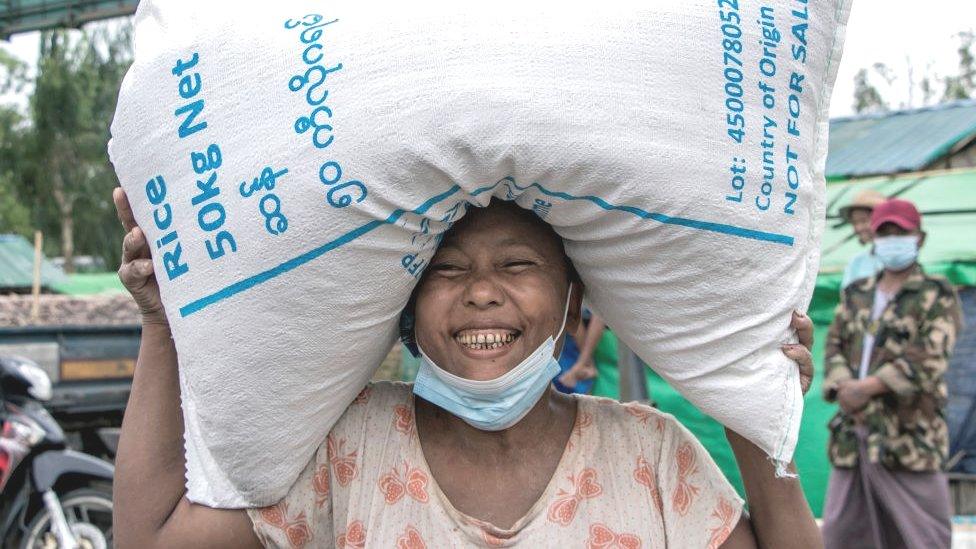Afghanistan: Dominic Raab says the UK has shared interest in a stable country
- Published
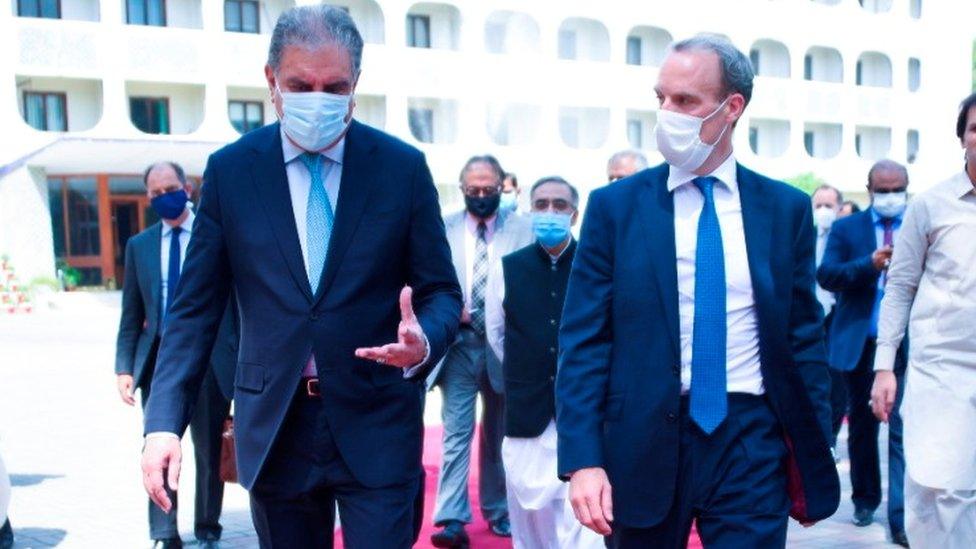
Pakistan's Foreign Minister Shah Mahmood Qureshi (L) has been holding talks with UK Foreign Secretary Dominic Raab
Foreign Secretary Dominic Raab says the UK and Pakistan have a "shared interest" in securing a "stable and peaceful future for Afghanistan".
Mr Raab has met his Pakistani counterpart and the country's prime minister as part of his regional tour.
The foreign secretary's visit is part of efforts to secure safe passage for Britons and others trying to leave Afghanistan.
It comes as the UK announced £30m in aid to bordering countries.
The funding will help provide shelter and sanitation for the tens of thousands of refugees expected to flee the Taliban regime.
Mr Raab promised the UK would be "shouldering our humanitarian responsibilities" to help Afghans, as well as neighbouring countries who are taking in the majority of refugees.
Meanwhile, the Foreign Affairs Select Committee - which questioned Mr Raab earlier this week - has announced it will hold an inquiry on UK policy towards Afghanistan.
Its chair, Tory MP Tom Tugendhat, said "big questions remain" over the UK's withdrawal from the country and its future approach to the region.
He added: "The true extent of the damage done will only become clear in the coming months and years. However, it is already clear that the world has become more dangerous and unstable."
In his first visit to Pakistan as foreign secretary, Mr Raab met the country's foreign minister, Shah Mahmood Qureshi, before holding talks with Prime Minister Imran Khan.
In a joint press conference with Mr Qureshi, the foreign secretary said the UK would be "supporting those countries who face greatest demands from those who may be displaced in the weeks ahead".
Pakistan, which shares a border with Afghanistan, is a key player in the crisis and already hosts about three million Afghan refugees.
Allow X content?
This article contains content provided by X. We ask for your permission before anything is loaded, as they may be using cookies and other technologies. You may want to read X’s cookie policy, external and privacy policy, external before accepting. To view this content choose ‘accept and continue’.

Mr Raab said "no-one wants to see the economic and social fabric of Afghanistan collapse", but the UK wanted to work with humanitarian agencies to help, rather than the Taliban itself.
The two-days of discussions were also expected to focus on how to encourage the Taliban to allow safe passage for refugees and prevent Afghanistan becoming a hub for terrorist groups.
The Foreign Office has already sent officials to help process those crossing the border.
But Mr Raab has been criticised by MPs for not focusing more on the country.
This week, he has been visiting the region to build a coalition with neighbouring countries to "exert the maximum moderating influence" on the Taliban.
After talks with leaders in Qatar on Thursday, the foreign secretary said evacuations may be able to resume from Kabul airport "in the near future".
The Afghan capital's airport is out of action following the withdrawal of US troops last week.
And on Thursday evening he said he had spoken to Tajikistan foreign minister Sirojiddin Muhriddin about "how our countries can help maintain stability in the region, and tackle the humanitarian situation in Afghanistan".
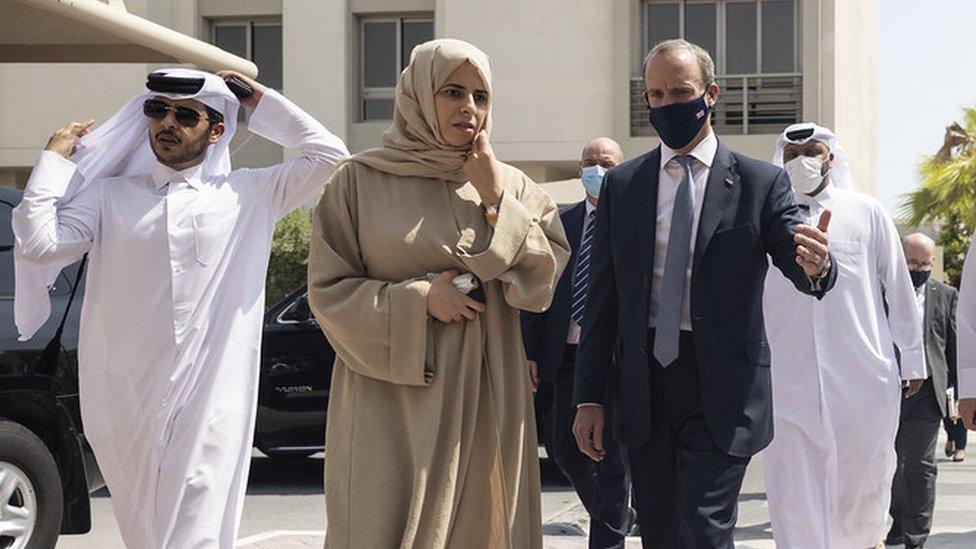
Dominic Raab visited Doha in Qatar on Thursday
Of the £30m in aid offered to neighbouring countries, Mr Raab said £10m would be made available immediately to humanitarian organisations in order to get supplies to Afghanistan's borders.
Countries predicted to experience a significant increase in refugees will also receive £20m to help with processing new arrivals and to provide essential services and supplies.
UNHCR, the UN Refugee Agency, has estimated a worst-case scenario of more than 500,000 refugees fleeing Afghanistan to Pakistan, Tajikistan, Iran, Uzbekistan and Turkmenistan in the coming months.
Mr Raab said: "It is vital that we help those fleeing Afghanistan and do not allow the crisis there to undermine regional stability."
He added that the aid showed the UK's "commitment to shoulder our humanitarian responsibility".
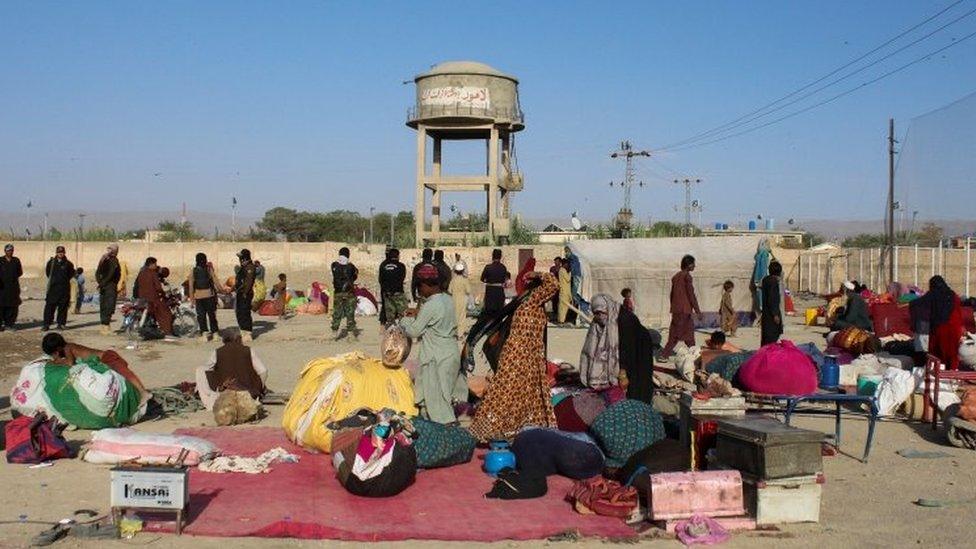
Afghan refugees are expected to travel to countries including Pakistan
More than 15,000 people have been evacuated by the UK from Afghanistan so far, including more than 5,000 British nationals,.
The last British plane flying people out of Kabul took off on Saturday, as the remaining foreign troops withdrew from the country.
It is feared thousands of people eligible for relocation, including Afghans who worked for the British and their families, have been left behind.
Mr Raab has estimated the number of UK nationals still in the country is in the "low hundreds" but he was unable to give a precise figure of the number of eligible Afghans who were unable to get on evacuation flights.
Last month, Prime Minister Boris Johnson announced an increase in aid to Afghanistan to £286m, amid a policy to cut spending on overseas assistance.
The UK sent £290m of aid to Afghanistan in 2019, according to a briefing from the House of Commons Library, and the government pledged £155m in aid for 2021 at the Afghanistan Conference in November 2020.

Are you a British national in Afghanistan or did you work for the UK government in Afghanistan? If it is safe to do so please share your experiences by emailing haveyoursay@bbc.co.uk, external.
Please include a contact number if you are willing to speak to a BBC journalist. You can also get in touch in the following ways:
WhatsApp: +44 7756 165803
Tweet: @BBC_HaveYourSay, external
Please read our terms & conditions and privacy policy
If you are reading this page and can't see the form you will need to visit the mobile version of the BBC website to submit your question or comment or you can email us at HaveYourSay@bbc.co.uk, external. Please include your name, age and location with any submission.
Related topics
- Published2 September 2021
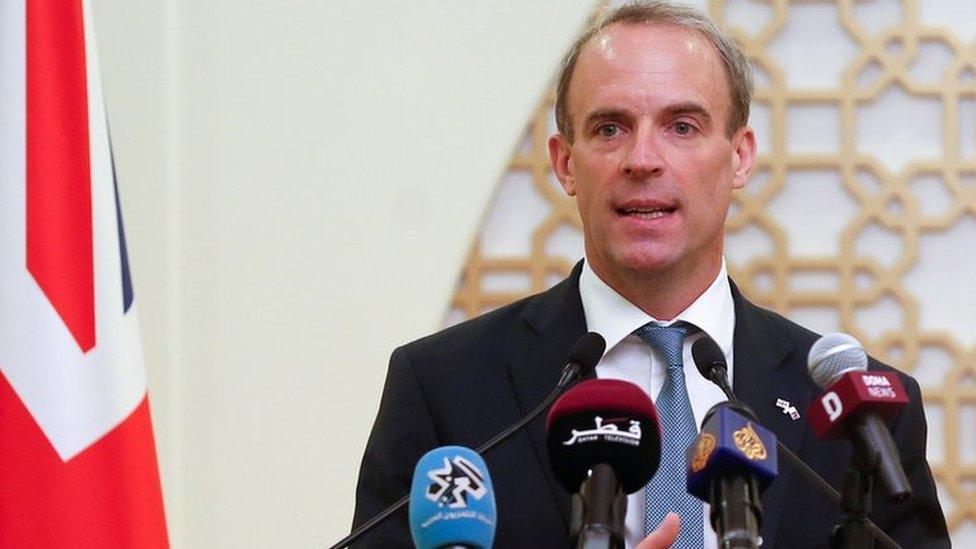
- Published31 August 2021
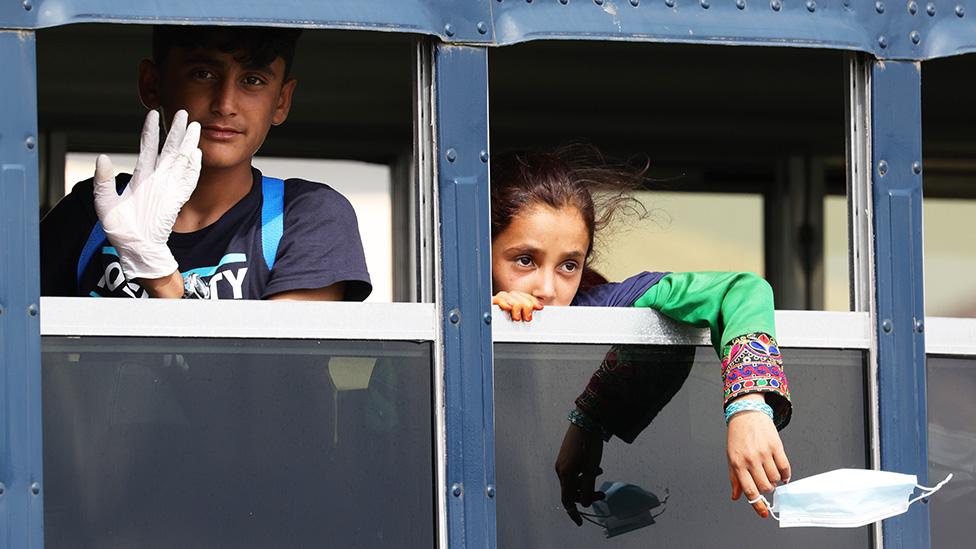
- Published8 November 2021
